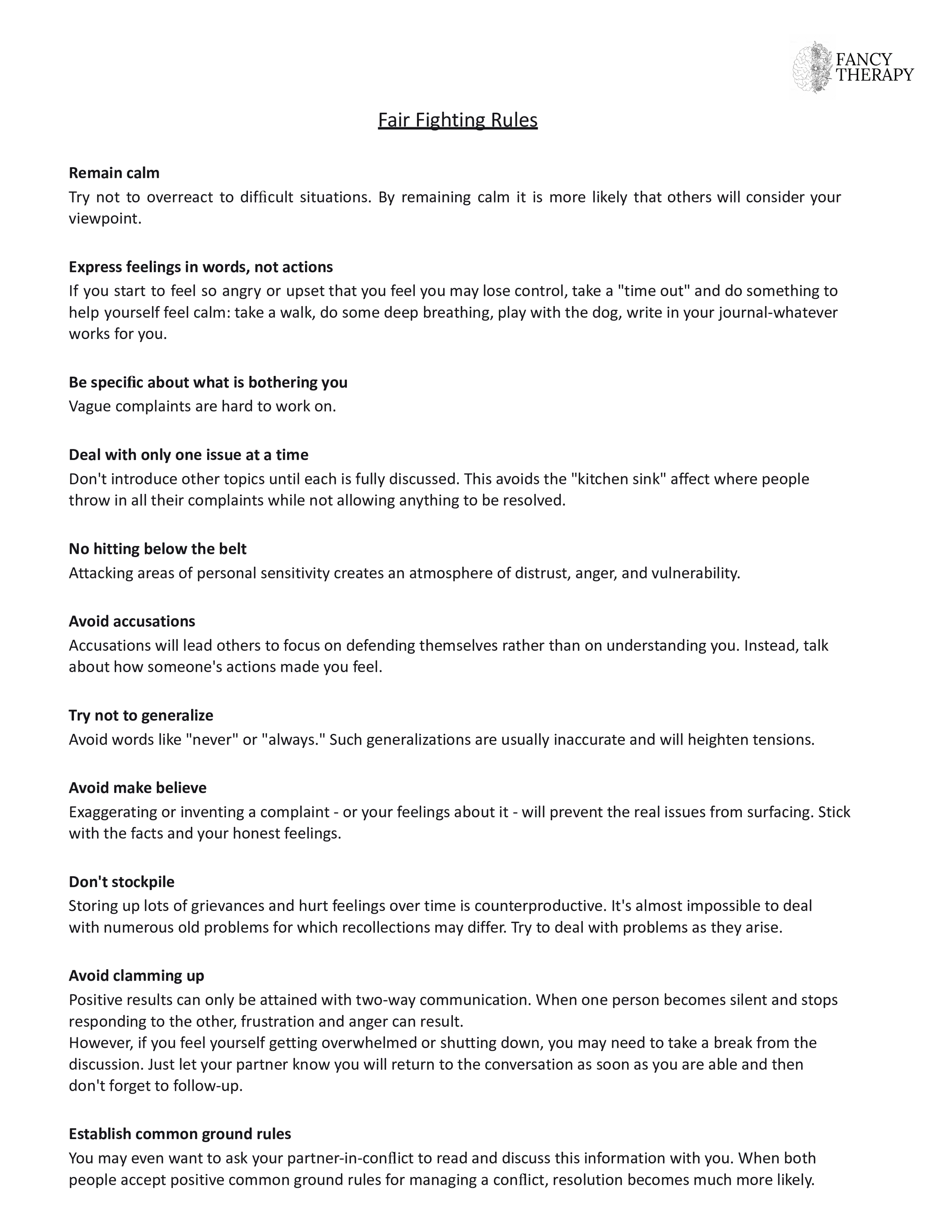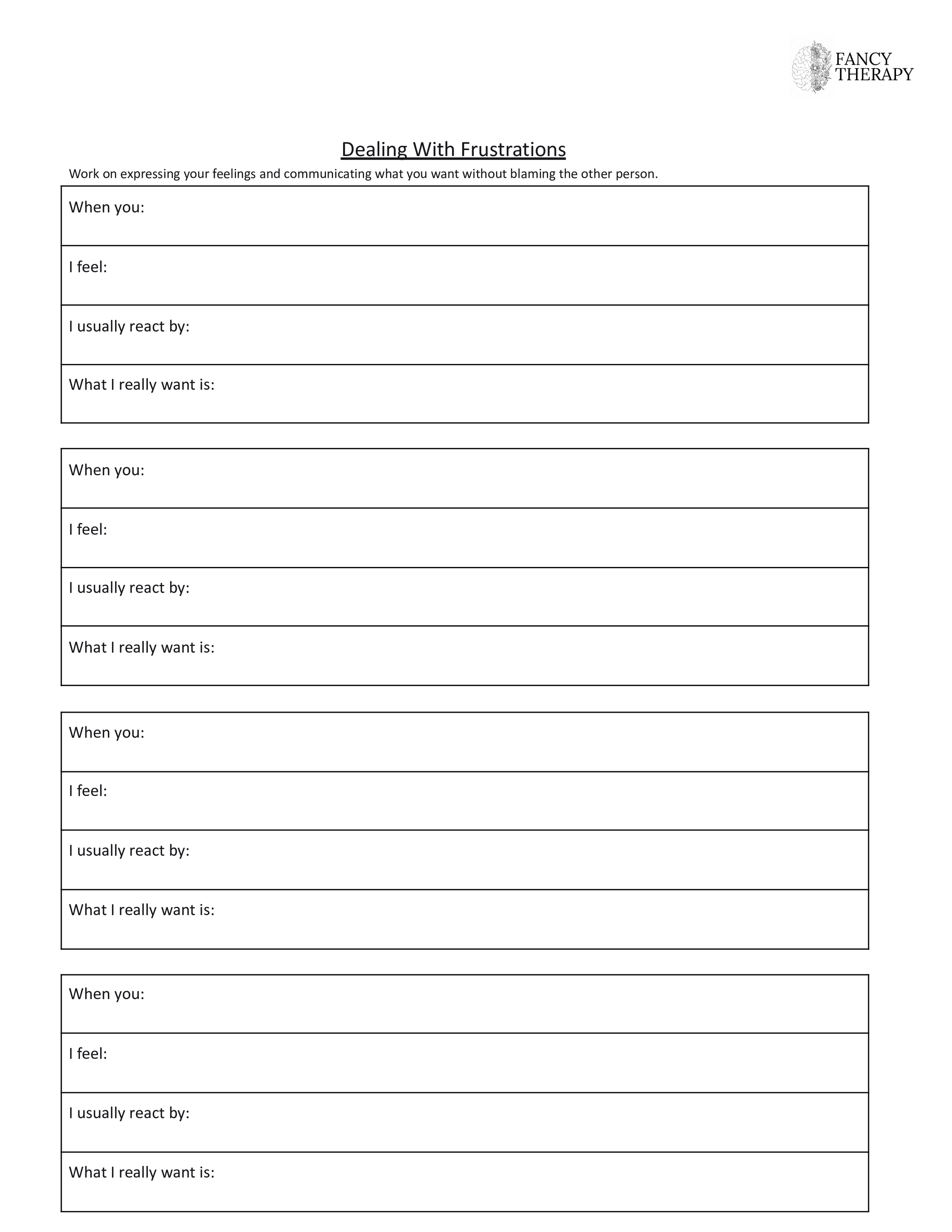Conflict Resolution Workbook
The conflict resolution workbook explains defense mechanisms and their role in the conflict resolution process. It provides rules for fair fighting, defines the stages of forgiveness, and prompts for what to say in the face of conflict. The workbook includes many worksheets which include but are not limited to anger tracking, avoidance hierarchy, and judgmental thought debriefs.
This workbook is meant to be used with the help of a psychotherapist, in ongoing therapy sessions to improve conflict resolution skills. It is not a substitution for therapy.
The conflict resolution workbook explains defense mechanisms and their role in the conflict resolution process. It provides rules for fair fighting, defines the stages of forgiveness, and prompts for what to say in the face of conflict. The workbook includes many worksheets which include but are not limited to anger tracking, avoidance hierarchy, and judgmental thought debriefs.
This workbook is meant to be used with the help of a psychotherapist, in ongoing therapy sessions to improve conflict resolution skills. It is not a substitution for therapy.
The conflict resolution workbook explains defense mechanisms and their role in the conflict resolution process. It provides rules for fair fighting, defines the stages of forgiveness, and prompts for what to say in the face of conflict. The workbook includes many worksheets which include but are not limited to anger tracking, avoidance hierarchy, and judgmental thought debriefs.
This workbook is meant to be used with the help of a psychotherapist, in ongoing therapy sessions to improve conflict resolution skills. It is not a substitution for therapy.
Includes:
Defence Mechanisms
Fair Fighting Rules and Steps
Stages of Forgiveness
Dealing with Frustrations
Identifying Triggers
Judgmental Thought Debrief
Positive Communication
Taking Responsibility
What to say in the face of conflict
Anger Tracking and Diary
Avoidance Hierarchy
Conflict Resolution - Do’s and Don'ts






